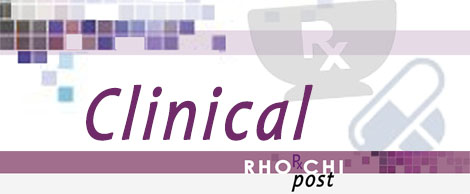
|
Are You Prepared for RSV Season?...
November 1, 2012 - Clinical , In the News / Politics By: Mahdieh Danesh Yazdi, Associate Student Editor – Many of us have prepared for influenza season by receiving the flu vaccine. (If you have not, please speak to your doctor or pharmacist soon! Remember: even if you do not need it for your protection, get it for your patients’ well-being). However, for the youngest members… |

|
Fungal Meningitis Outbreak: A Sobering Tragedy...
November 1, 2012 - In the News / Politics By: Mahdieh Danesh Yazdi, Associate Student Editor – For the past few weeks, we have heard about the terrible breakout of fungal meningitis from contaminated methylprednisolone acetate vials manufactured by the New England Compounding Center (NECC). Approximately 14,000 patients received medication from the contaminated lots. So far, over 400 cases have been reported and over… |

|
Ivacaftor (KalydecoTM): Targeting the Core of Cystic Fi...
November 1, 2012 - Clinical , Featured By: Eugene Kolomiyets, PharmD Candidate c/o 2013, AMSCOP at LIU – Cystic fibrosis (CF) is an autosomal recessive disease caused by a mutation in the cystic fibrosis transmembrane conductance regulator (CFTR) gene located on chromosome 7.1 The disease has been linked to thousands of possible mutations, but only as many as 25-30 are tested for… |

|
Low-dose SSRIs for the Overly Sensitive Esophagus...
November 1, 2012 - Clinical , Featured By Sunhae Chang, PharmD Candidate c/o 2013 – When patients complain of heartburn, the blame usually shifts to gastroesophageal reflux disease (GERD). Therefore, patients receive the “standard therapies for GERD”: antacids, histamine-2 receptor antagonists (H2RAs), proton pump inhibitors (PPIs), or prokinetics.1,2 Luckily, most patients respond well to these agents.1,2 Unfortunately, the not-as-lucky ones, despite PPI… |

|
Mechanisms of NSAID Induced Functional Renal Toxicity...
November 1, 2012 - Clinical , Featured By: James W. Schurr & Stephen Argiro, PharmD Candidates c/o 2014 – Patients frequently utilize non-steroidal anti-inflammatory drugs (NSAIDs) for a wide variety of conditions, including but not limited to arthritis, headaches, and generalized pain. Despite an excellent safety profile, NSAIDs are associated with certain toxicities, including renal complications (particularly among at risk populations).1 Acute… |

|
New Drug Review: Tofacitinib (Xeljanz®)...
November 1, 2012 - Clinical By: Jessica Lee, PharmD Candidate c/o 2013 – Rheumatoid arthritis (RA) is an autoimmune disease in which the immune system attacks healthy tissue, causing inflammation of the joints and potential harm to other organs.1 It affects 0.5-1% of the adult population and is more prevalent in the seventh decade of life.1 These patients tend to… |

|
NYS ACCP – Fall Clinical Meeting 2012...
November 1, 2012 - Events By: James Schurr, Stephen Argiro, & Michael Cronin, PharmD Candidates c/o 2014 – This October, we had the privilege of attending the New York State chapter of the American College of Clinical Pharmacy (ACCP) annual meeting held at the Albany College of Pharmacy and Health Sciences. The purpose of this event was to orient members… |

|
Safety and Efficacy of Atropine for Salivary Hypersecre...
November 1, 2012 - Clinical By: Elsa Thomas, PharmD Candidate c/o 2013 – Atropine is an anticholinergic used to treat various conditions, such as bradycardia, neuromuscular blockade, mydriasis, nerve agent poisoning, and salivary hypersecretion.1,2 Pharmacologically, it inhibits smooth muscle and glands innervated by postganglionic cholinergic nerves.1,2 It also has functions in the central nervous system (CNS); it could stimulate or… |

|
SSRI Discontinuation Syndrome...
November 1, 2012 - Clinical By: Shannon Tellier, PharmD Candidate c/o 2013 – Antidepressant discontinuation syndrome has been reported in all categories of antidepressants after an abrupt interruption of therapy.1 Symptoms usually occur within a few days of stopping or reducing the dosage of the antidepressant, and rarely occur with therapy of less than five weeks.1 If left untreated, most… |